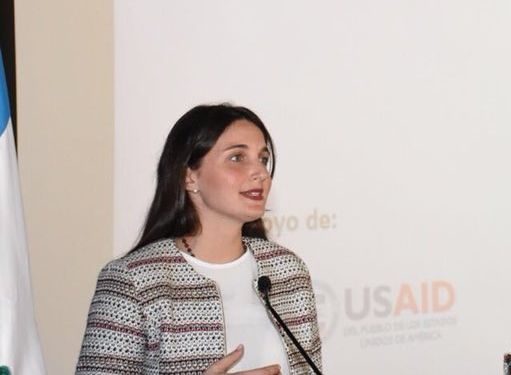Throughout this year and nine months, the Argentine State adopted severe and diverse measures that affected citizens’ lives in a myriad of ways. As we stated in our report, the Covid-19 crisis neither brought up any legal changes to the structure of the federal or local governments nor implied new divisions of competencies between jurisdictions. However, several of the measures adopted gave rise to controversies over their constitutionality. This can be approached from two different perspectives. On the one hand, as a significant encroachment on provincial competences by the central Government (see previous post) and, on the other hand, as an excessive restriction of liberties by some provincial governments based on their health policing powers to deal with the pandemic. In fact, it was the issues related to the distribution of competences and powers of provincial governments that prompted the Supreme Court to review some of the measures.
One of the most controversial responses to the pandemic was that adopted by the government of the province of Formosa. On 16 March 2020, the Governor issued Provincial Decree 100/2020, which would be the cornerstone of the local regulation to fight the pandemic. In said decree, the Governor made the province ‘adhere’ to the measures established by the national executive through DNU 260/2020 and set up a Council on Integral Attention of the Covid-19 Emergency (Consejo de Atención Integral de la Emergencia Covid-19) composed of all the ministers and secretaries of the state. The national decree had established a mandatory stay-at-home order for everyone in the country. It should be added that, in the case of Formosa, the compulsory isolation lasted eight months, without a positive case of Covid-19 being reported.
Through Resolution 2/2020, the Council created ‘preventive isolation centers’, in which all those returning to the province had to stay for up to two weeks. Furthermore, the Council set up the ‘Orderly Return Program to the Province of Formosa’ (Programa de ingreso ordenado y administrado de personas a la provincia de Formosa) (ORP). The ORP meant that all those who were outside the provincial boundaries as of 16 March 2020 had to apply to be allowed to return by local authorities. This implied, in fact, the creation of inter-provincial barriers, which is constitutionally controversial in accordance with the stipulations of Articles 75 [13] and 126 of the National Constitution [1]. It’s necessary to add that the decisions made were supported by the provincial legislature. Facing an imminent ruling on the constitutionality of the measures by the Supreme Court, on 11 November 2020, the legislature passed Law No 1697, which granted the province's health strategy legal status, including the executive decrees and decisions adopted by the Council, as well as those to be adopted in the future. It is worth mentioning that, of the 30 seats in the provincial legislature, 20 were under the control of the ruling party. Finally, the Supreme Court ruled on 19 November 2020.
The Supreme Court’s decision was motivated by the filing of a collective amparo appeal, in which the plaintiffs alleged that the programme constituted a violation of recognized constitutional rights. They also alleged that the measure was arbitrary and disproportionate. The Supreme Court argued that ‘while the powers of the provinces to establish the preventive measures cannot be disregarded, such powers must be exercised in accordance with constitutional standards’. It also added that ‘without prejudice to recognizing the public health protection purposes pursued by the Programme, the restrictions established by the local authorities did not pass the test of reasonableness established in Article 28 of the Constitution, by suppressing individual liberties beyond what is tolerable’. Thus, it ordered the province to provide the necessary means to guarantee the effective entry into the provincial territory of all the citizens who had requested it, within a period of 15 days. In the decision, the Court recognized, as it had done in previous precedents, that sanitary policing power is a concurrent competence between the federal and provincial governments.
As mentioned above, once people had been authorized to enter the province, they had to quarantine for two weeks in the isolation centers before being allowed to circulate in Formosa. Such isolation centers sheltered, at the same time, those entering the province, and those suspected and confirmed of having Covid-19. The living conditions in these centers led to the filing of an habeas corpus suit by a national senator from Formosa. He mentioned that, in these centers, to which people were taken by force if they fit the definition of a suspected case, the lights were turned on 24 hours a day and people constantly were guarded by police officers, as if they were imprisoned. He stated that there was no ventilation or sufficient distancing, putting people who were not infected with Covid-19 at risk. According to Senator Naidenoff’s suit, even children had been separated from their families and placed in these facilities by force. In response to these claims, in February 2021, the Supreme Court cited a series of specific decisions it had rendered throughout the pandemic regarding various measures and reiterated a strong, principled commitment to the system of personal freedoms established by the Constitution. Citing the Inter-American Court and Commission on Human Rights, the Supreme Court concluded that ‘even in the emergency scenario prompted by Covid-19 … the measures adopted to face pandemics which entail the regulation of fundamental rights must be temporarily limited, legal, adjusted to the objectives defined according to scientific criteria, reasonable, strictly necessary and proportional’. However, the specific order of the Court was less emphatic. It asked the province for more information regarding the situation of these centers, and then ‘urged’ the provincial government ‘to carry out the control and prevention of the spread of the Covid-19 virus in accordance with the constitutional and conventional standards concerning human rights, as well as on the urgent duty that weighs on the courts of justice throughout the country, within the framework of their respective powers, to provide effective protection to people whose rights are threatened or have already been violated’.
On 12 March 2021, the national executive issued Decree 168/2021, which established the conditions under which provincial governments could enforce the isolation of persons entering their jurisdiction. In particular, Article 3 stipulated that the measure would be appropriate in the case of confirmed or suspected cases of Covid-19, close contacts, or when people showed symptoms. This led to the closure of the preventive isolation centers in the province of Formosa and their replacement by health isolation centers. Citizens were forced to spend the period of the disease in such centers, without the possibility of staying at home.
At the same time, in response to these new stipulations, the Council on Integral Attention of the Covid-19 Emergency established a mandatory fee of 5,000 pesos for all persons entering the territory in order to cover the costs of the two PCR tests required by local authorities after entering the province. The measure implied another de facto barrier to the entry of people, especially for those in vulnerable situations. This led to the filing of another habeas corpus suit. The plaintiffs argued that the measure was unreasonable and violated the right to freedom of movement. They also claimed that the government received sufficient funds from the federal Government to protect public health.
Nevertheless, the claim was dismissed at both first and second instance, which considered the measures as reasonable, proportional, and useful to safeguard public health. Finally, the Criminal Cassation Court rendered its judgement on 16 July 2021. It decided to declare the unconstitutionality of the Sanitary Protocol for the Entry of Persons into the Province of Formosa and ordered the cessation of the tariff requirement imposed by the provincial government. In order to do so, it argued that it was an unreasonable and illegitimate measure that implied an inadmissible limitation on the right to freedom of movement. The Court also considered that the mandatory fee violated the right to equality, established in Article 16 of the National Constitution, due to the fact that economic capabilities constituted an arbitrary criterion of distinction. In this regard, it remarked that the Protocol did not provide for alternative or special mechanisms for cases in which the persons concerned claimed to be unable to pay the fee. Lastly, relying on the Supreme Court's ruling of November 2020, according to which courts must examine restrictions on individual rights as they become more intense and prolonged, it argued that another circumstance that made the measure unreasonable was its temporal extension.
Since then, the restrictions imposed in Formosa have been decreasing. As months passed and the date of the elections loomed, the provincial government gradually eliminated all restrictions. Particularly, in September, just before the primaries took place, the government allowed the interprovincial transport of passengers, which had been restricted since the beginning of the pandemic.
The pandemic has offered political leaders, especially authoritarian ones, a great opportunity to reassert or reinforce their own powers. The preservation of our basic constitutional structures in times of emergency requires us to be alert to the responses provided by the authorities, a demand imposed by our republican commitment.
[1] The Supreme Court, relying on the US Supreme Court's interpretation of the commerce clause, has pointed out that the constitutional clauses prevent provincial states from passing laws that burden commerce in a way that hinders or impedes it, or that benefits one provincial state over another. However, it has not ruled on the compatibility of constitutional clauses and the establishment of provincial quarantines. In these cases, while quarantines may have an effect on interprovincial trade, their regulation is not their immediate purpose. The main purpose of such measures is the protection of public health, which is a concurrent power between the Nation and the provinces, in accordance with constitutional provisions and court precedents.


